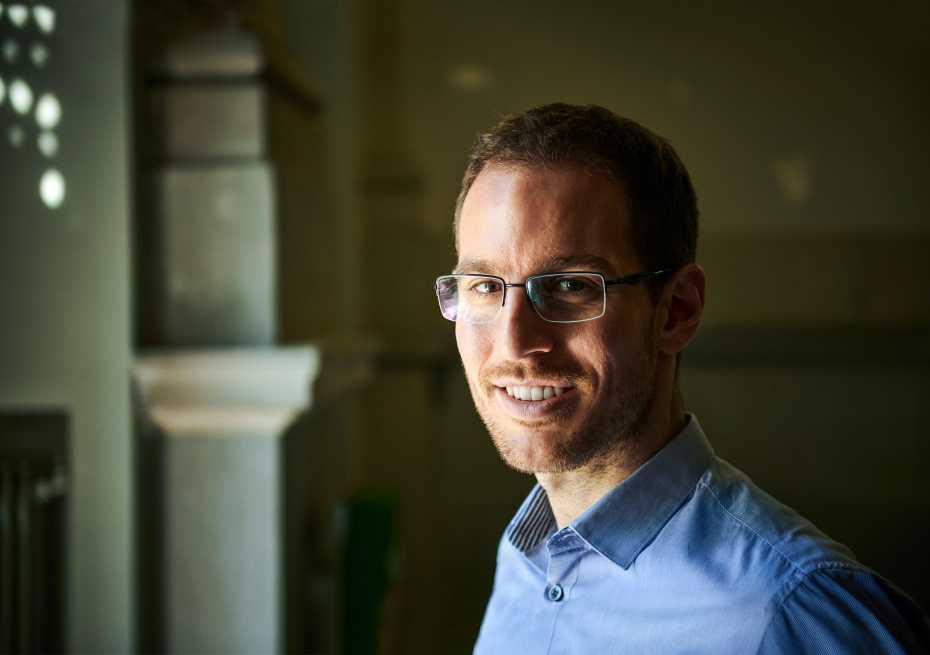
Having a ball: two Swiss-based mathematicians win top award

For the first time the Fields Award, the “Nobel prize of mathematics”, has been given to two researchers in Switzerland for insights into sphere-packing and phase-transition theory.
Maryna Viazovska from the Swiss Federal Institute of Technology Lausanne (EPFL) and Hugo Duminil-Copin from the University of Geneva have been honoured with the highest award in mathematics.
The International Mathematical Union (IMU) presented the Fields Medal on Tuesday at the International Congress of Mathematicians in Helsinki. As usual there were four winnersExternal link, all of whom must be aged under 40.
Kyiv-born number theorist Viazovska, 37, is only the second woman to be honoured with the Fields Medal since the first prizes were awarded in 1936. She received the prize for her achievements in solving so-called sphere packing problems “and further contributions to related extremal problems and interpolation problems in Fourier analysis”, the IMU said.
Hugo Duminil-Copin, 36, is being honoured for “solving longstanding problems in the probabilistic theory of phase transitions in statistical physics”. The French physicist uses ideas from probability theory to analyse phase transitions – changes in the properties of matter, such as those that occur when liquid water changes to ice.
The two other winners were Korean-American mathematician June Huh of Princeton and British mathematician James Maynard of the University of Oxford.
The Fields Medal, created by Canadian mathematician JC Fields, is awarded every four years to recognise “outstanding mathematical achievement for existing work and for the promise of future achievement”. Each winner receives CAN$15,000 (CHF11,200).

More
Swiss-based mathematician wins prestigious prize

In compliance with the JTI standards
More: SWI swissinfo.ch certified by the Journalism Trust Initiative






























You can find an overview of ongoing debates with our journalists here . Please join us!
If you want to start a conversation about a topic raised in this article or want to report factual errors, email us at english@swissinfo.ch.